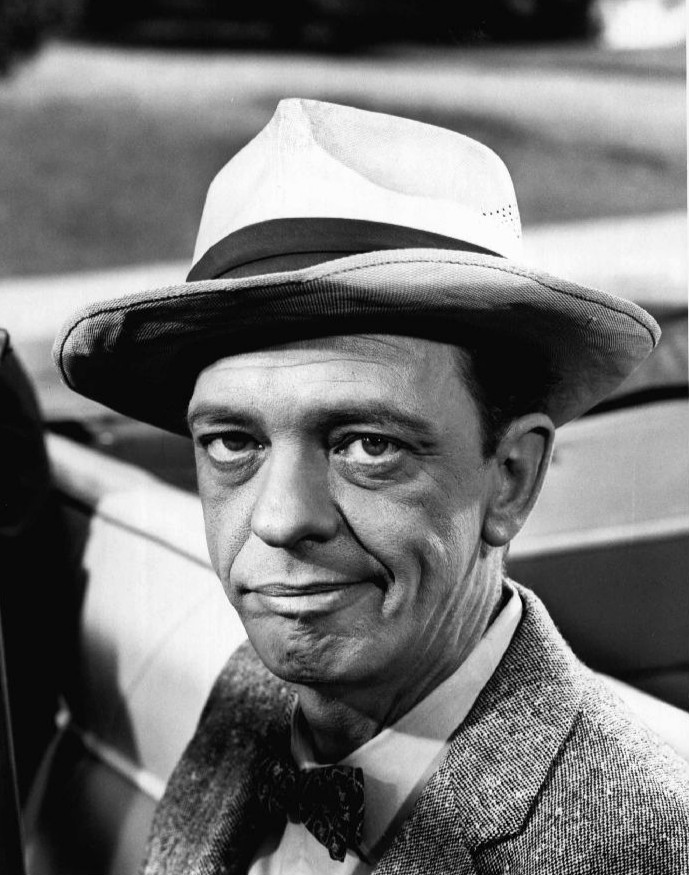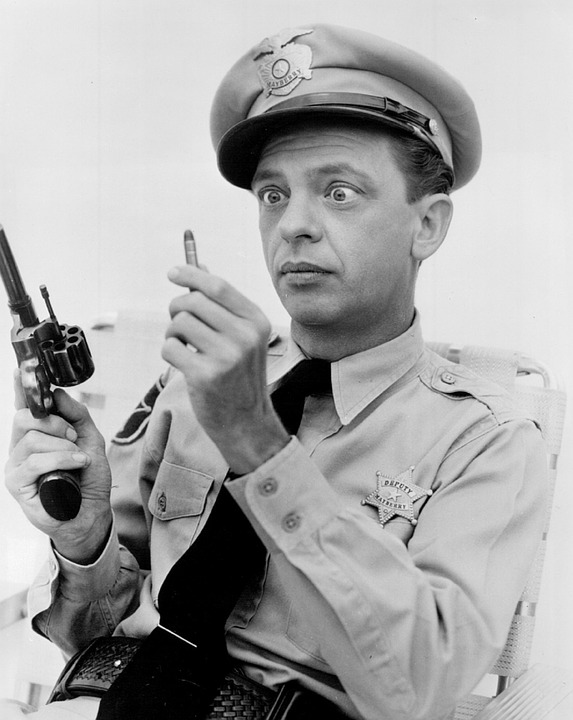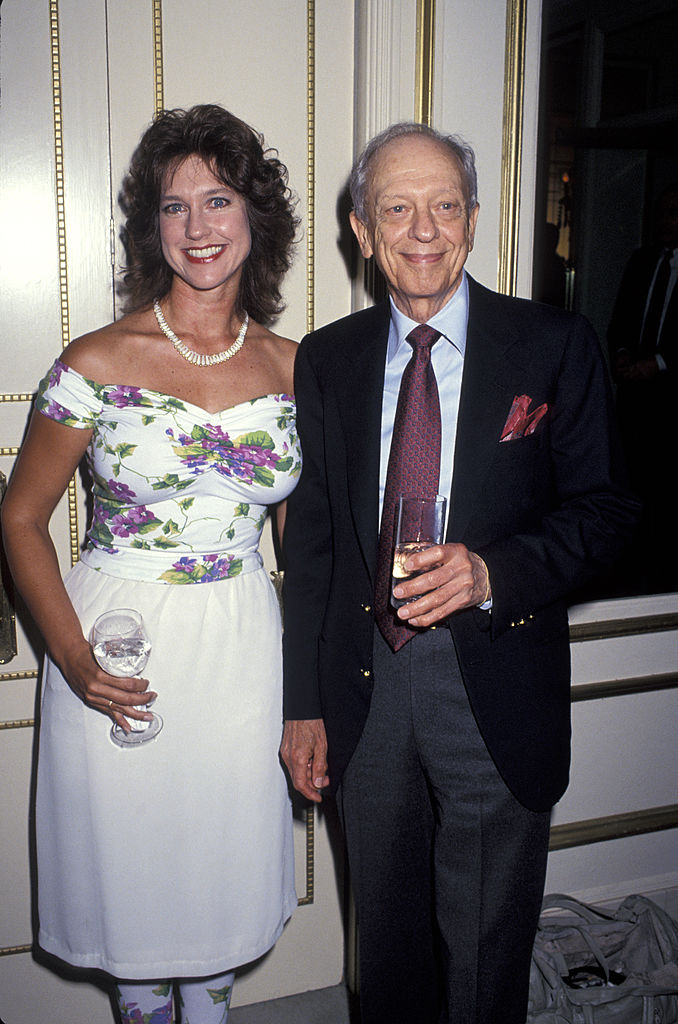Don Knotts, the beloved comic actor, is a name synonymous with unforgettable TV characters, most notably as the quirky and neurotic Deputy Barney Fife on The Andy Griffith Show and the eccentric landlord Ralph Furley on Three’s Company. With a career spanning over five decades, Knotts earned his place as one of the most cherished comedic actors in American television history. But beyond the laughter, there was a man who faced tremendous personal struggles and challenges—struggles that shaped both his career and his character. Here’s an in-depth look at Don Knotts’ remarkable life and legacy.
From Humble Beginnings: A Glimpse Into Don Knotts’ Early Life

Don Knotts was born in Morgantown, West Virginia, in 1924. Growing up in a financially struggling household, Knotts’ early life was far from easy. His father, suffering from mental health issues, struggled to provide stability. His mother, who was 40 when Don was born, worked tirelessly to support the family. These hardships, including the tragic early deaths of two of his brothers, deeply impacted Knotts’ worldview. But despite the challenging environment, Don found solace in humor—developing a knack for making people laugh from a young age.
His ability to find light in dark situations helped him navigate a childhood marked by personal loss. Knotts’ early life experiences would later become the bedrock for his comedy career, giving him an ability to empathize with others through humor.
Discovering Comedy: From Shy Teenager to TV Star
Although Don Knotts was naturally shy, his love for performing blossomed during his teenage years. He first found his passion for comedy through ventriloquism, entertaining at local churches and events. This early foray into performance would eventually lead him to New York City with hopes of making it big in the entertainment world.
After a rough start, Knotts returned home, defeated but determined. The outbreak of World War II proved to be a pivotal moment in his life. Knotts enlisted in the Army and served in the entertainment division, traveling to the Pacific to perform for troops. His use of a ventriloquist doll, “Danny ‘Hooch’ Matador,” became a source of comfort for soldiers, earning him multiple service medals. This period solidified his passion for performing and would lay the foundation for his future career in comedy.
Breakthrough with The Andy Griffith Show: Barney Fife Becomes a Household Name
In 1960, Don Knotts’ career took a major turn when he was cast as Deputy Barney Fife on The Andy Griffith Show. Initially intended as a minor role, Knotts’ portrayal of the high-strung, bumbling but lovable deputy soon became the heart and soul of the show. His impeccable comedic timing and ability to create a character that was both neurotic and endearing made Barney Fife one of TV’s most iconic roles.
The role earned Knotts five Emmy Awards, and his chemistry with co-star Andy Griffith was undeniable. Griffith, who played the calm and collected Sheriff Andy Taylor, balanced Knotts’ frantic energy, creating an unforgettable dynamic that resonated with audiences. Their friendship off-screen mirrored their onscreen bond, with Griffith often encouraging Knotts to take risks in his career.
A New Chapter: Ralph Furley on Three’s Company
While Knotts had achieved immense success with The Andy Griffith Show, his career didn’t stop there. In the late 1970s, he joined Three’s Company as Ralph Furley, a flamboyant and somewhat clueless landlord. The role marked a shift from his previous portrayal of Barney Fife, but Knotts once again showcased his mastery of physical comedy and slapstick humor.
Though the role was different, Knotts’ trademark energy and charm made Furley an instantly lovable character. His work on Three’s Company introduced him to a new generation of fans, proving that his comedic genius was timeless. Knotts’ ability to adapt to different roles while maintaining his distinctive style solidified his place in TV history.
Behind the Laughs: Don Knotts’ Personal Struggles

Despite his public persona as the funny man, Don Knotts faced personal struggles throughout his life. He was married three times and had two children, but his battles with depression, anxiety, and hypochondria were well-documented. Knotts’ daughter, Karen, has spoken about her father’s struggles with these issues, which were likely tied to his tumultuous childhood and later health problems, including macular degeneration.
Knotts sought therapy to manage these personal battles and, though he was often absent from family life due to the demands of his career, those who knew him described him as a caring father. However, Knotts’ support of his children’s career choices was sometimes complicated—especially when Karen decided to pursue acting. He was protective of his family and often fearful of the harsh realities of the entertainment industry.
A Legacy of Laughter: Don Knotts’ Impact on Entertainment

Don Knotts continued to work well into his later years, taking on voice roles and even contributing to animated projects like Scooby-Doo. His contributions to the entertainment world were recognized when he received a star on the Hollywood Walk of Fame in 2000.
In his final years, Knotts faced declining health but maintained his humor. Even as he battled lung cancer, he kept making his family laugh with his jokes, offering a testament to his enduring gift of comedy. Knotts passed away in 2006 at the age of 81, but his legacy lives on through his work and the laughter he brought to millions.
Honoring Don Knotts in His Hometown
Morgantown, West Virginia, has honored Don Knotts in several meaningful ways. A statue of Knotts holding a script and badge—a tribute to his iconic TV roles—stands as a symbol of his contributions to the world of entertainment. The town also named a street “Don Knotts Boulevard,” ensuring that his legacy will forever be tied to his roots.
Conclusion: A Comedic Genius Whose Legacy Lives On
Don Knotts was more than just a funny man—he was a comedic genius whose humor transcended generations. His ability to turn personal struggles into universal comedy is a testament to his resilience and creativity. Whether he was making us laugh as Deputy Barney Fife or Ralph Furley, Knotts’ impact on television and comedy is immeasurable. His legacy continues to inspire, reminding us that laughter truly is the best medicine—even in the toughest of times.


